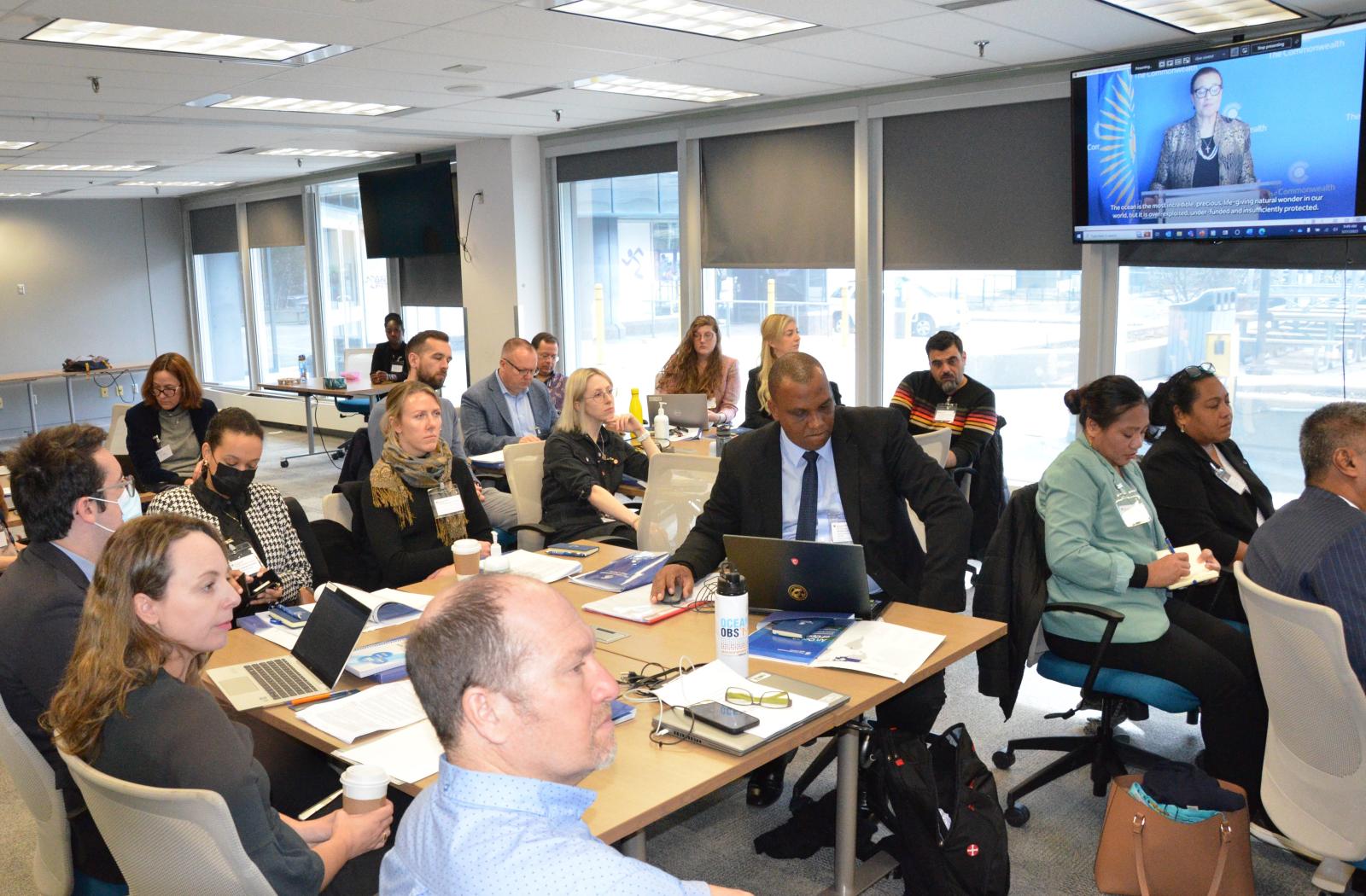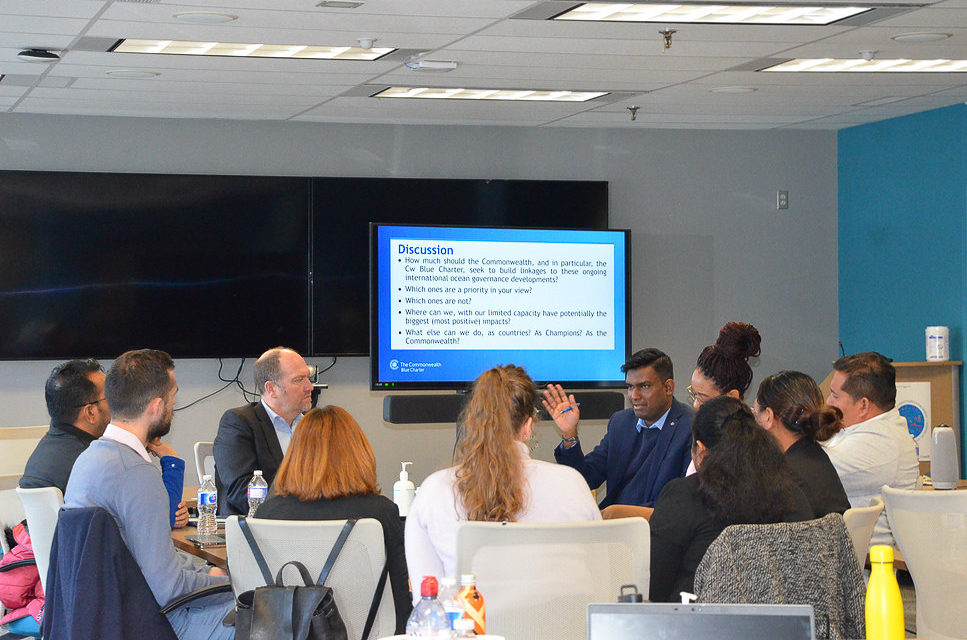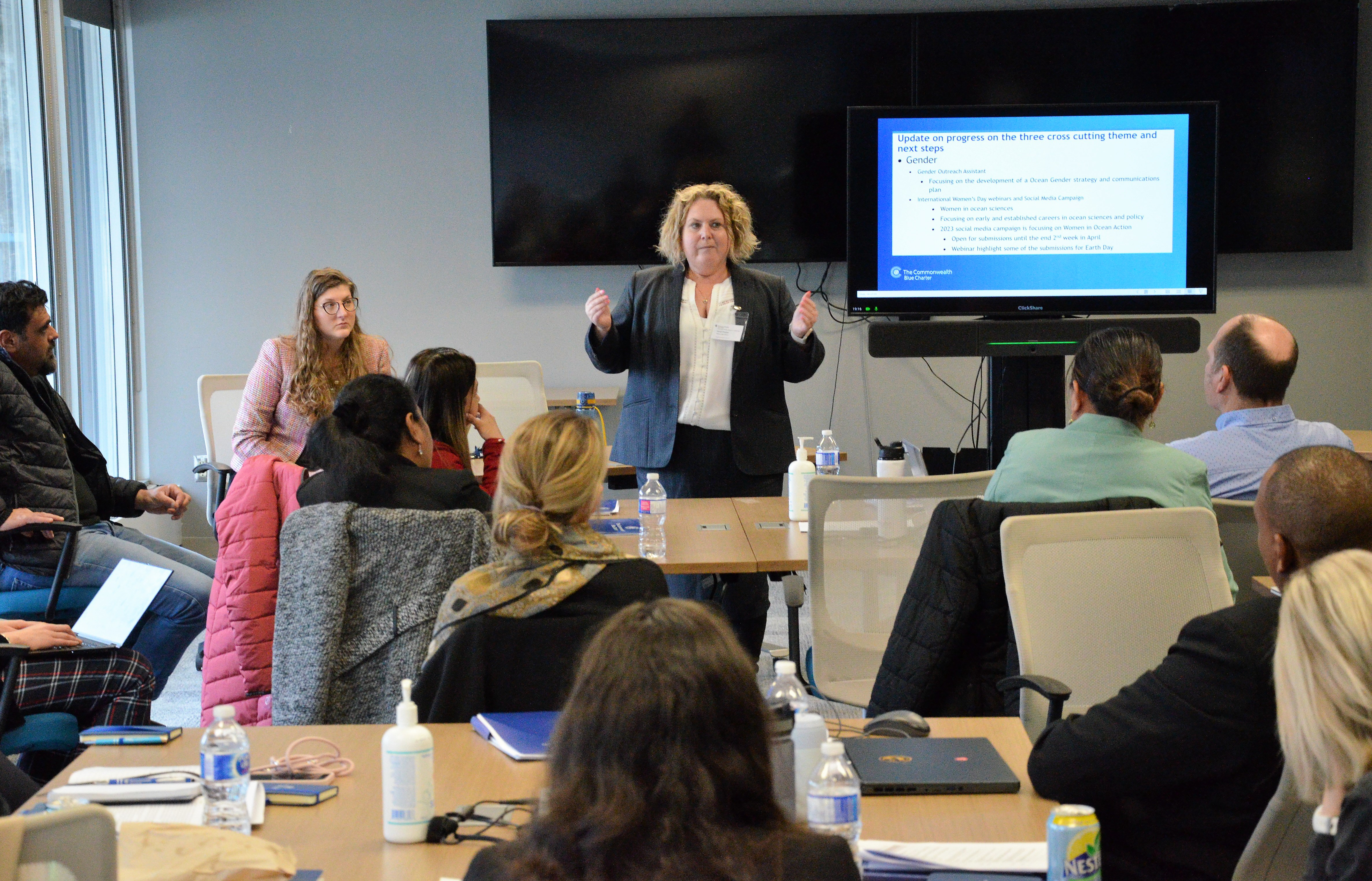By Subaskar Sitsabeshan, Outreach and Project Development Manager, Commonwealth Blue Charter
Last month, the champion countries of the Commonwealth Blue Charter gathered in Ottawa, Canada to reflect on joint progress to date in advancing ocean sustainability, and to chart a course for the next phase of the Blue Charter. As Outreach and Project Development Manager for this flagship initiative, I was excited to attend this long-awaited meeting, which had been postponed for three years due to the COVID-19 pandemic.

The Commonwealth Blue Charter is a unique initiative uniting 56 Commonwealth member countries to work collaboratively towards the protection, governance and sustainable development of our shared ocean. Given that delivering on the myriad of international ocean commitments, including SDG14, is too great a challenge for any country to achieve on its own, the Blue Charter is centred on a cooperative approach to addressing shared ocean challenges.
Ocean champions
Central to the implementation of this ethos are 16 champion countries who collectively lead ten action groups, each addressing pressing issues ranging across marine plastic pollution, protection and restoration of critical ecosystems such as mangroves and coral reefs, impacts of climate change including ocean acidification, and sustainable use of the ocean through the ‘blue economy’ in areas such as fisheries and aquaculture.
The Blue Charter All-Champions meeting, hosted by the Canadian government, was attended by 36 representatives from 14 of these champion countries. Participants reflected on the progress made over the past five years, identified priority issues for the coming year and outlined the elements of a future action plan. The meeting celebrated the champions' remarkable achievements, including establishing Marine Protected Areas (MPAs), implementing policies to tackle plastic pollution and promoting sustainable fishing practices.

Adding value
Delegates also discussed the unique features of the Commonwealth Blue Charter delivery model, which allow it to add value to other ocean initiatives. These include:
- Voluntary approach: The Commonwealth Blue Charter is a voluntary initiative, open to all Commonwealth member countries. Each country has the flexibility to determine their level of engagement and the specific issues they want to focus on. As such it is a ‘coalition of the ambitious’, with 46 countries active to date in one or more of the action groups.
- Specific issue focus: The Blue Charter concentrates on implementing solutions to shared challenges identified by the countries, targeting efforts more effectively to make a greater impact.
- Collaboration: The initiative emphasises cooperation among member governments, civil society organisations, private sector actors and academic institutions. This is essential to addressing complex issues that require a coordinated effort.
- Inclusivity: The diversity within the Commonwealth brings a unique perspective and opportunity for all countries to have an equal voice, regardless of size. The Blue Charter particularly recognises the important role played by small island (but large ocean) developing states (SIDS), climate-vulnerable countries, indigenous peoples, local communities, women and youth in ocean stewardship. This creates exceptional opportunities for partnerships that leverage local and traditional knowledge and expertise.
- Capacity building through peer learning: The Blue Charter has a strong emphasis on building skills and knowledge, particularly among government officials in countries of the Global South, through sharing of experiences among members and partners. As such, it provides a strong model of South-South cooperation.
- Best practices and evidence-based approaches: Sharing best practices and adopting evidence-based approaches to ocean governance, management and conservation efforts helps ensure that member countries are using the most effective strategies to promote ocean health and sustainability.
- Practical project delivery: Practical initiatives such as Rapid Readiness Assessments and the Blue Charter Project Incubator directly address the need to scale up local action and pilot country-led innovative solutions.
These features make the Commonwealth Blue Charter a valuable platform for addressing ocean-related challenges through inter-governmental cooperation and sharing of experiences. The Commonwealth Secretariat plays a pivotal role in supporting the champions and action groups, as well as catalysing action through the Blue Charter Project Incubator, which cultivates government leadership in finding new ocean solutions.

Urgent action needed
The champions' recognition of the need for increased international support, including ocean finance, was a striking feature of the meeting. It was heartening to see countries from different regions and different levels of resources coming together to work towards a common goal. This is particularly important for smaller, developing states that may not have the resources or expertise to tackle these issues on their own.
In addition, the sense of urgency expressed by the Blue Charter champions in their efforts to drive positive change was palpable. From the impacts of climate change to plastic pollution to unsustainable fishing practices, it was clear that action needs to be taken urgently to protect our ocean and the livelihoods of the millions of people who depend on it.
There are also many reasons to be hopeful. The meeting showcased a range of innovative solutions being developed by champion countries and partner organisations, from biodegradable plastic alternatives to sustainable tourism practices. These demonstrate that with creativity, determination and collaboration, it is possible to address even the most complex ocean-related challenges.
Individual, collective contributions
Finally, one of the key takeaways that resonated with me personally, is the importance of individual actions, alongside government actions, in protecting the ocean. While large-scale policy changes and international collaboration are essential, we can all make a difference in our daily lives too by reducing plastic use, choosing sustainable seafood options (such as Maldivian tuna) and advocating for ocean protection in our communities. The Commonwealth Blue Charter is a powerful example of how political will, when mobilised alongside individual and collective actions, can effect meaningful change.

Road to CHOGM 2024
With the ocean facing unparalleled threats, the work of the Blue Charter champions is more crucial than ever before. Their holistic, collaborative and practical approach to ocean sustainability is exactly what is needed for tangible change. As the 2024 Commonwealth Heads of Government Meeting in Samoa approaches, with ocean issues expected to be a central focus, the Blue Charter's unique model allows countries to demonstrate their commitments to our one shared ocean in a pragmatic and transparent way.
Media contact
- Josephine Latu-Sanft Senior Communications Officer, Communications Division, Commonwealth Secretariat
- +44 20 7747 6476 | E-mail



